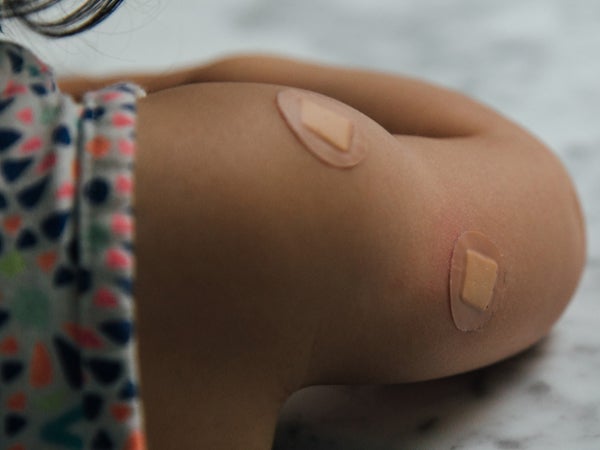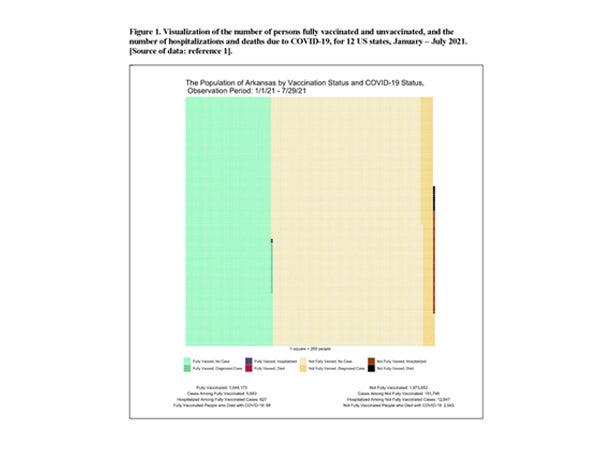A study published in JAMA Open Network by Harvard Pop Center faculty member S (Subu) V Subramanian, PhD, visiting scientist Rockli Kim, and their colleagues reveals a pattern of vaccination rates among children (ages 12-23 months) in India; despite efforts to achieve increased vaccination rates nationally, the number of children in certain regions and states in India who did not receive routine vaccinations (first dose of the diphtheria-tetanus-pertussis (DTP) vaccine)…
“Picturing Prevention” working paper offers impactful visualizations of the protection of vaccination from hospitalization and death due to COVID-19
A Harvard Pop Center Working Paper by Jarvis T. Chen, ScD, Christian Testa, BS, William P. Hanage, PhD, and Nancy Krieger, PhD, offers vivid and simple graphics that illustrate why getting vaccinated against COVID-19 matters by depicting available data for 12 states from January – July 2021.
Mass vaccination campaign in India may have contributed to spike in cases
Professor S (Subu) V Subramanian, PhD, has authored a comment in The Lancet Global Health in which he cautions that the mass vaccination campaign in India may have contributed to the recent increase in COVID-19 cases there. He urges leadership in India to rethink its vaccination strategy to reduce virus spread by preventing overcrowding and enforcing non-pharmaceutical interventions, such as masking and social distancing, at vaccination centers. On IndiaToday.com, Subu…
Continue reading “Mass vaccination campaign in India may have contributed to spike in cases”
Paid maternity leave linked to better child vaccination coverage
Harvard RWJF Health & Society Scholar program alum Arijit Nandi, PhD, is co-author on a paper published in Social Science & Medicine that studied 20 low-and-middle-income countries (LMICs) and found that more generous paid maternity leave benefits were associated with higher rates of immunization for DTP (diphtheria, tetanus, and pertussis), commonly administered during clinic visits after birth.


